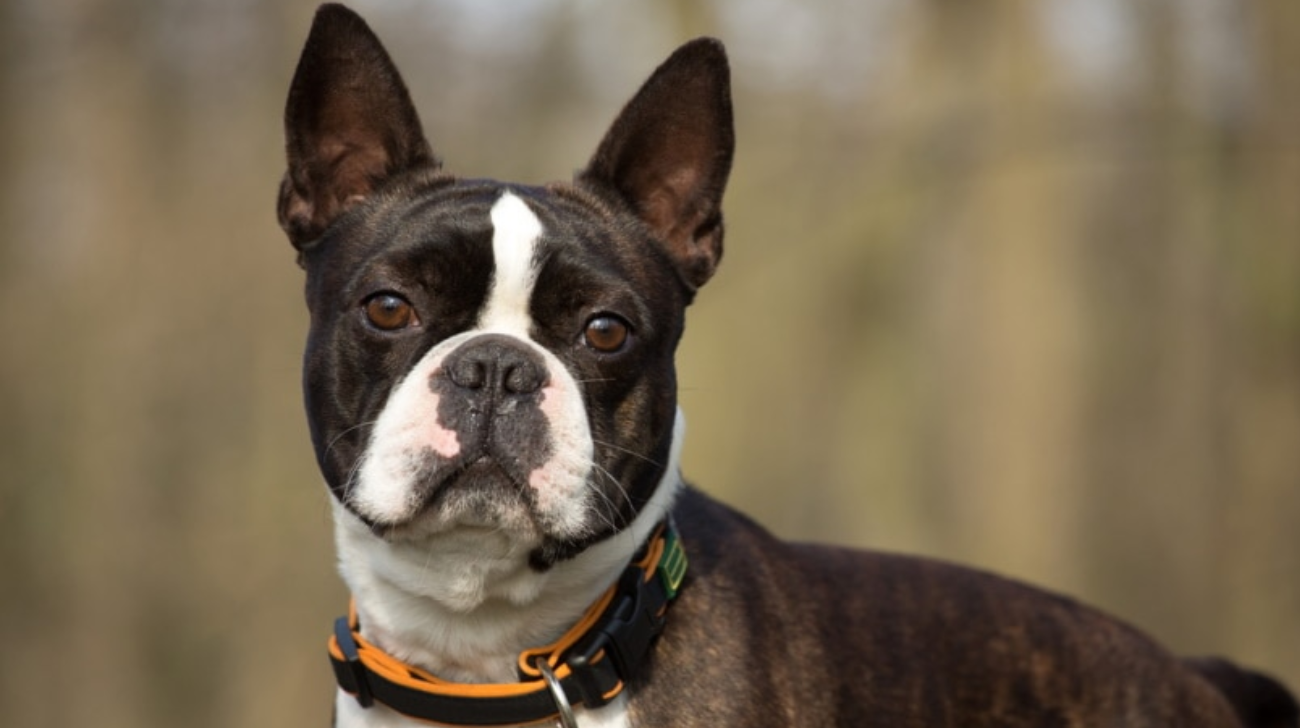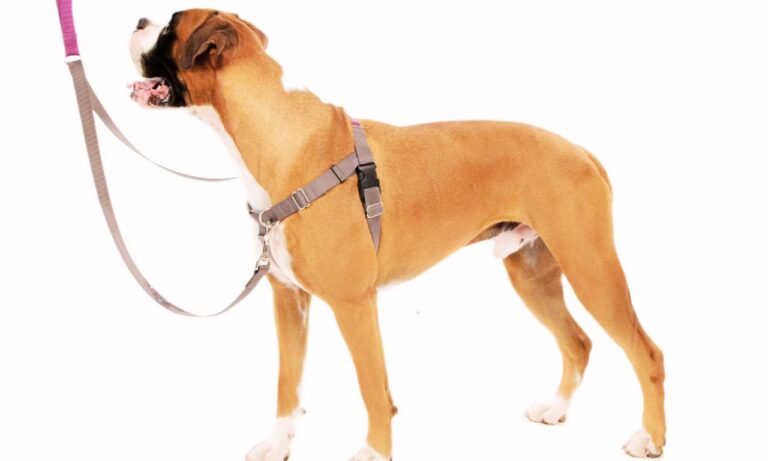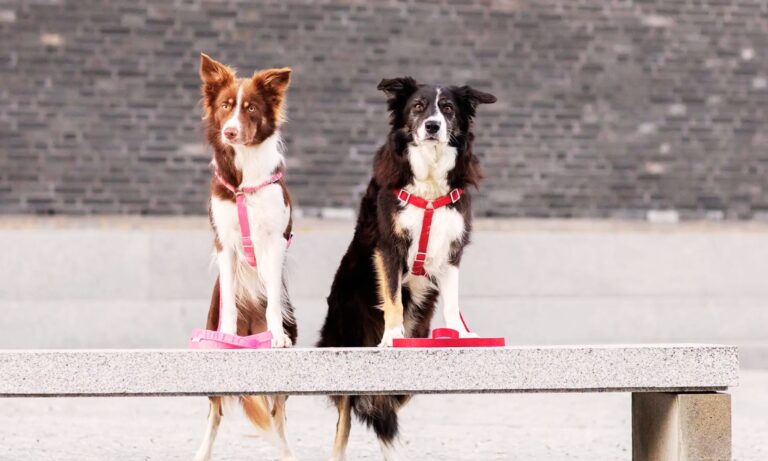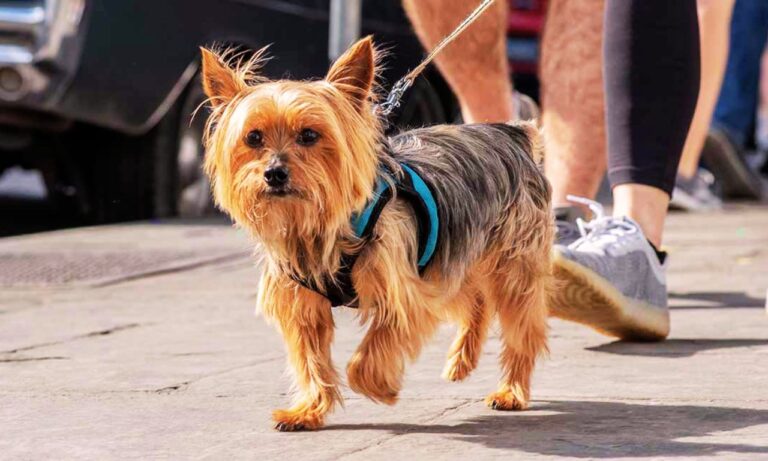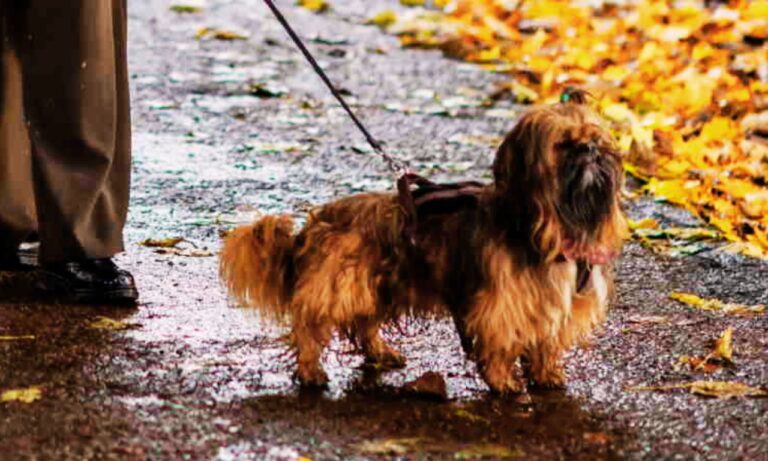Boston Terriers are a small yet muscular breed, and their physical proportions are essential to understand when selecting the right collar or clothing for them. A well-fitting collar or accessory ensures comfort and safety, allowing your dog to move freely without discomfort.
Let’s dive into the details of the average neck measurement for Boston Terrier, factors that influence this, and how to accurately measure your pet. Discover if the American Eskimo is a guard dog and learn about its suitability for protecting your home.
Blog Highlights
ToggleAverage Neck Size of a Boston Terrier
On average, a Boston Terrier’s neck measures between 12 to 18 inches (30.5 to 45.7 cm). This range can vary slightly depending on factors such as the dog’s age, sex, and overall size. For most adult Boston Terriers, the neck size typically falls between 14.5 to 16 inches (36 to 40 cm).
This average neck measurement for Boston Terrier size variation is important to note, especially if you’re shopping for collars, harnesses, or dog clothes that need a proper fit. The recommended size collar for an English Cocker Spaniel usually ranges from 12 to 18 inches, providing a snug and comfortable fit for your dog.
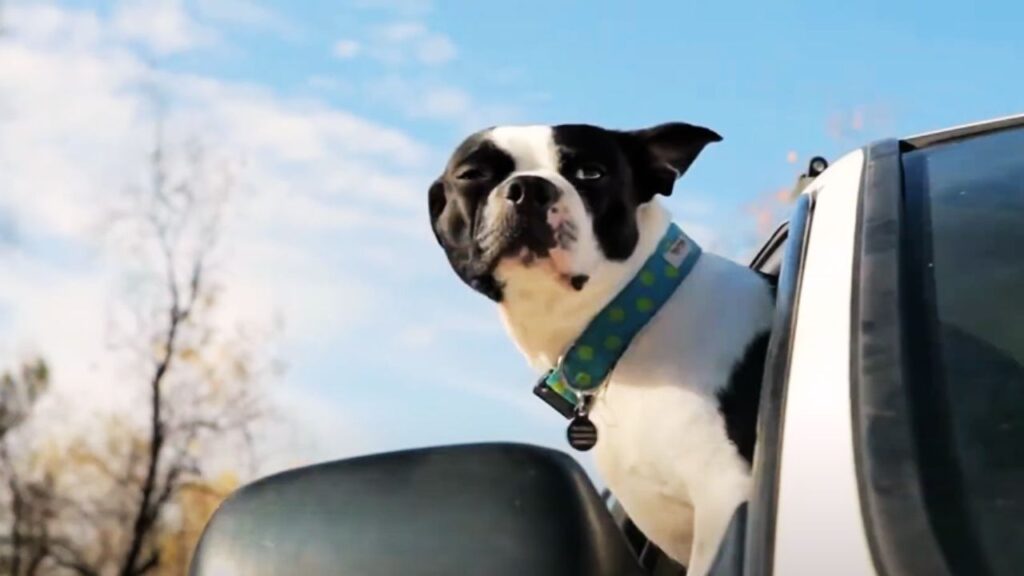
For smaller Boston Terriers, such as those on the lower end of the weight scale (10–15 pounds), neck measurements can hover around 12 to 14 inches. For larger Boston Terriers, who weigh closer to 25 pounds, neck sizes may reach up to 18 inches.
It’s crucial to take precise measurements of your individual dog rather than relying solely on breed averages since factors like age, exercise levels, and diet can influence their physique.
Factors Influencing Neck Size
Several factors impact the neck size of a Boston Terrier, including genetics, diet, and exercise. Here’s a closer look at how these elements come into play:
- Genetics: Just as humans inherit physical traits from their ancestors, Boston Terriers inherit neck proportions from their lineage. Breeders strive to maintain a balance between neck size and overall body structure.
- Diet and Nutrition: Proper nutrition is essential for muscle development in dogs, and Boston Terriers are no exception. A well-balanced diet helps ensure that their neck muscles grow correctly. If their nutrition is lacking, this could lead to variations in their overall body structure, including the neck.
- Exercise: Regular physical activity promotes muscle strength, including the neck muscles. Dogs that are more active generally have a healthier, well-developed physique compared to sedentary dogs.
Measuring Your Boston Terrier’s Neck
Measuring your Boston Terrier’s neck accurately is essential for ensuring a good fit when buying collars or clothes. The ideal size collar for English Springer Spaniel typically ranges from 14 to 20 inches, depending on the dog’s age and neck size, ensuring a comfortable and secure fit.
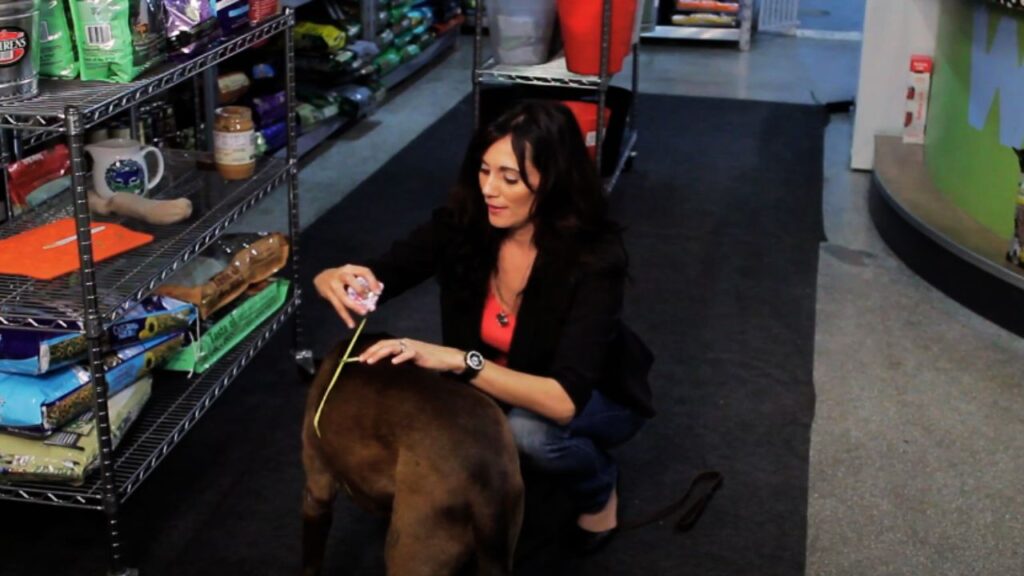
Here’s a step-by-step guide to help you take the correct measurements:
- Tools You’ll Need: Use a soft measuring tape or, if that’s not available, a piece of string and a ruler. Ensure your dog is standing still, as this will give you the most accurate reading.
- Measure the Neck Circumference: Wrap the measuring tape around the base of the neck, right where the collar would naturally sit. Ensure that the tape is snug but not too tight—using the two-finger rule is helpful here. You should be able to comfortably slide two fingers between the tape and your dog’s neck. This ensures that the collar or accessory won’t be too tight or uncomfortable.
- Write Down the Measurement: Once you’ve measured the neck, make a note of the number. This will help when selecting items for your dog, especially when comparing different manufacturers’ size charts. Always aim for a slightly larger collar if your dog’s measurement falls between sizes, as this will provide more comfort.
Choosing the Right Collar for Your Boston Terrier
With your Boston Terrier’s neck size in mind, selecting the right collar is the next step. Several types of collars are available, each with its own advantages:
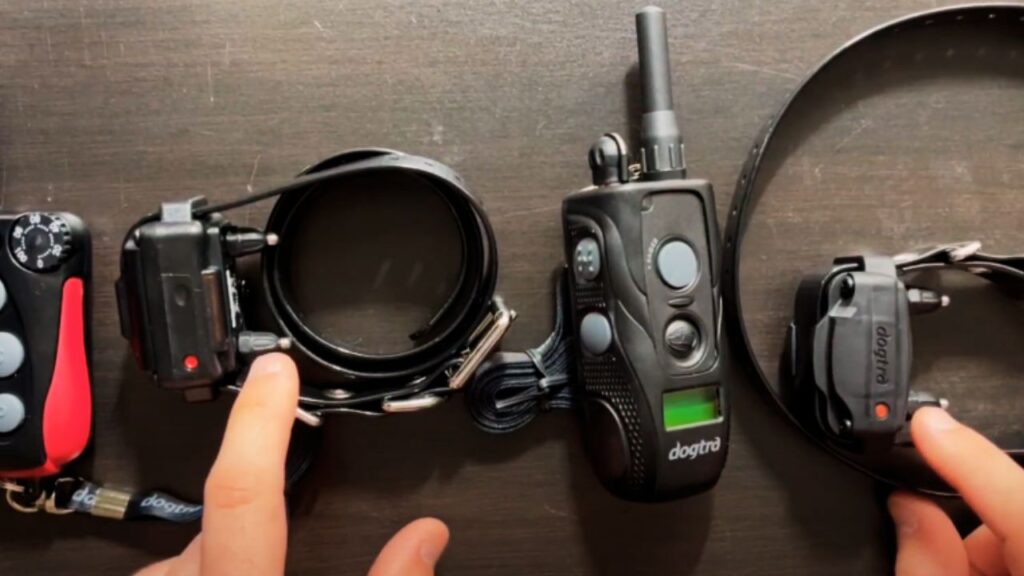
- Buckle Collars: These are a classic option and provide secure fastening, making them ideal for everyday use. They’re available in a variety of materials like leather and fabric.
- Martingale Collars: These are designed to tighten slightly when your dog pulls, making them a great option for dogs that tend to escape from standard buckle collars. However, they should always fit snugly without choking the dog.
- Harnesses: For dogs with a broader chest, like Boston Terriers, a harness can sometimes be a better option than a collar. Harnesses distribute pressure evenly across the body rather than focusing it on the neck, which can be particularly useful if your dog pulls on the leash.
Health Implications of Incorrect Collar Fit
Wearing a collar that’s either too tight or too loose can lead to various health problems for your Boston Terrier. A tight collar may restrict their breathing, irritate the skin, or even cause muscular strain.
On the other hand, a loose collar can easily slip off, putting your dog at risk if they decide to run off. Ensuring a proper fit will prevent these issues and contribute to your pet’s overall comfort and safety. Learn about the size collar for an American Eskimo to ensure a perfect fit and comfort for your dog.
How to Choose the Best Collar for Your Boston Terrier?
When choosing a collar for your Boston Terrier, you must consider not only the neck size but also the material, functionality, and comfort of the collar. Since Boston Terriers are known for their broad chests and compact frames, selecting the right collar ensures their comfort and safety during walks or daily activities.
Collar Materials
One of the first considerations when choosing a collar for your Boston Terrier is the material. There are several types available, and each has its own benefits:
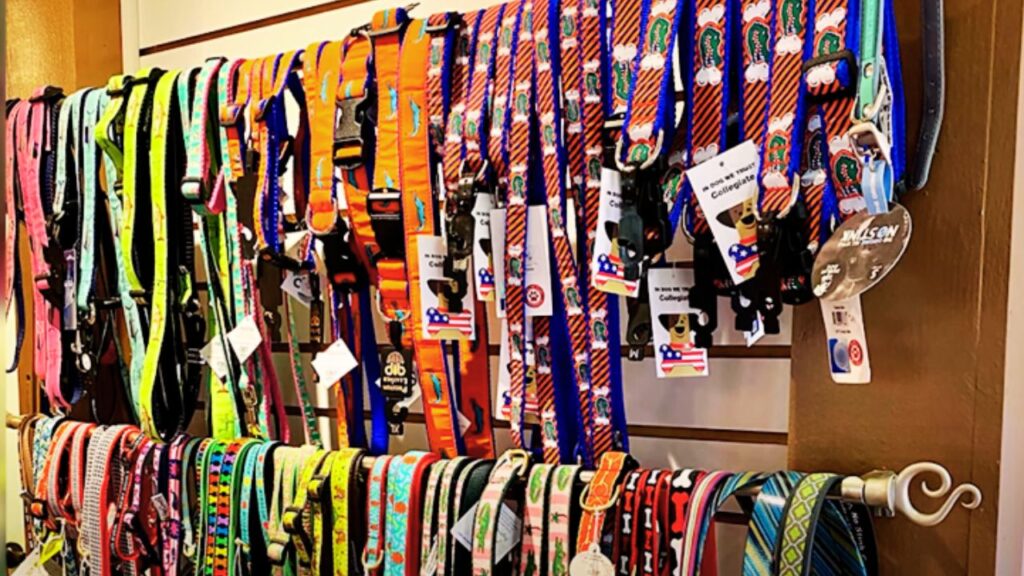
- Nylon Collars: These are lightweight and easy to clean, making them ideal for everyday use. Nylon collars are also relatively inexpensive and come in a wide variety of colors and designs. For Boston Terriers, who are active and energetic, nylon collars can be a good choice due to their durability and flexibility.
- Leather Collars: For a more durable and stylish option, leather collars are a great alternative. While they tend to be more expensive than nylon, leather collars are long-lasting and provide a more sophisticated look. However, it’s important to ensure that the leather is soft and doesn’t cause irritation on your dog’s skin, as some stiff leather collars may cause discomfort if not properly broken in.
- Cotton or Fabric Collars: These collars are comfortable and often feature soft padding, which can be helpful for dogs with sensitive skin. Fabric collars may also be more flexible than leather and nylon, providing a snug yet comfortable fit around the neck of a Boston Terrier. However, fabric collars may not be as durable as other options and could require frequent replacement if your dog is especially active.
- Martingale Collars: If your Boston Terrier tends to pull on the leash or try to slip out of regular collars, a martingale collar is a good choice. Martingale collars gently tighten when your dog pulls, preventing them from escaping while still being loose enough to avoid choking. These collars are popular for dogs with heads narrower than their necks, but they work well for Boston Terriers too if they have a habit of escaping.
Functionality
In addition to material, the functionality of the collar is also an important consideration:
- Breakaway Collars: These collars are designed to release if your dog gets caught on something, which helps to prevent choking. While typically used for cats, breakaway collars can also be useful for Boston Terriers who are curious and prone to exploring small spaces where they could get stuck.
- Adjustability: A collar that allows for easy adjustment ensures that your dog remains comfortable as they grow or as their weight fluctuates. This is especially important for Boston Terriers, whose neck size can vary as they mature or as their activity levels change. An adjustable collar provides flexibility and ensures that the collar fits properly throughout the dog’s life.
- Harness Compatibility: For Boston Terriers, who have a broad chest and compact body, many owners prefer to use a harness rather than a collar for walking. If you prefer a collar, look for one that works well with a harness so that you can distribute pressure evenly across their body. Harnesses are particularly useful for dogs that pull or have respiratory issues, which can be common in short-nosed breeds like Boston Terriers.
Health Considerations for Collar Fit
An improperly fitted collar can lead to several health issues, ranging from skin irritation to more severe respiratory problems. Boston Terriers, like other brachycephalic (short-nosed) breeds, are prone to respiratory difficulties. For this reason, it’s essential to select a collar that fits well and doesn’t place undue pressure on the trachea or throat.
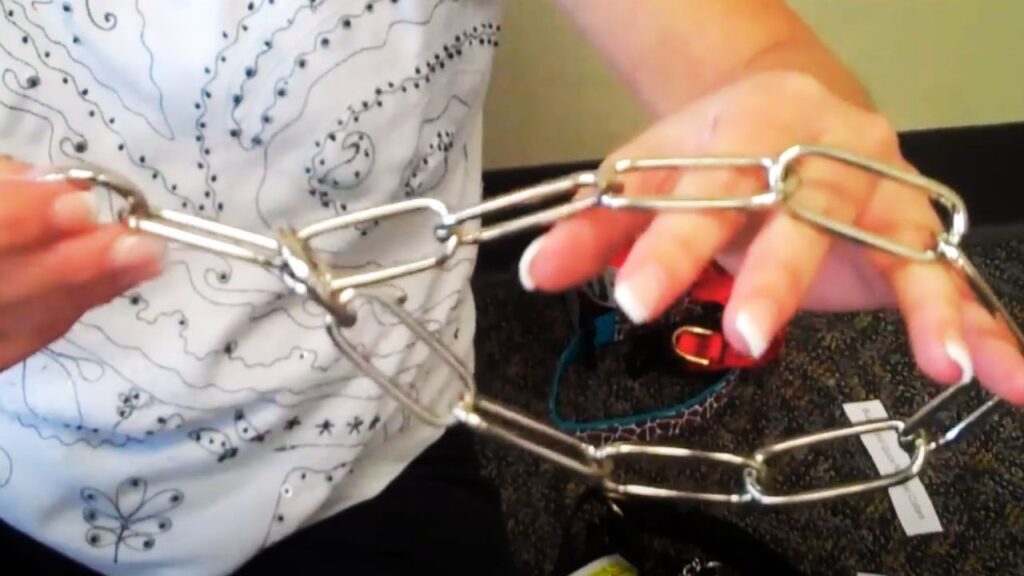
If the collar is too tight, it can press against the dog’s airway, leading to restricted breathing. Conversely, if the collar is too loose, it may slip off or cause the dog to rub their neck on the ground, leading to skin irritation or injury. The ideal collar should fit snugly but still allow room for two fingers to slip between the collar and the dog’s neck. Discover why Afghan Hound collars are wide by exploring the unique characteristics of this breed and how wide collars enhance their comfort and style.
Wrapping Up:
The average neck measurement for Boston Terrier typically falls between 12 to 18 inches, with most dogs ranging from 14.5 to 16 inches. Understanding your dog’s specific neck size and properly measuring it ensures the perfect fit for collars, harnesses, and clothing.
Factors such as genetics, diet, and exercise all influence their neck size. By following the proper measurement techniques and choosing a well-fitted collar, you can keep your Boston Terrier comfortable, stylish, and safe.
Always prioritize your dog’s health and comfort when selecting accessories, and consult a vet if you’re unsure about the right size for your pet. Find out what style dog collar is best for hounds to ensure comfort and safety for your furry friend.

